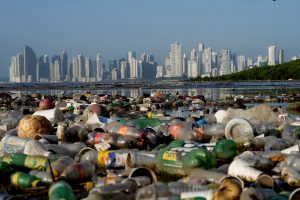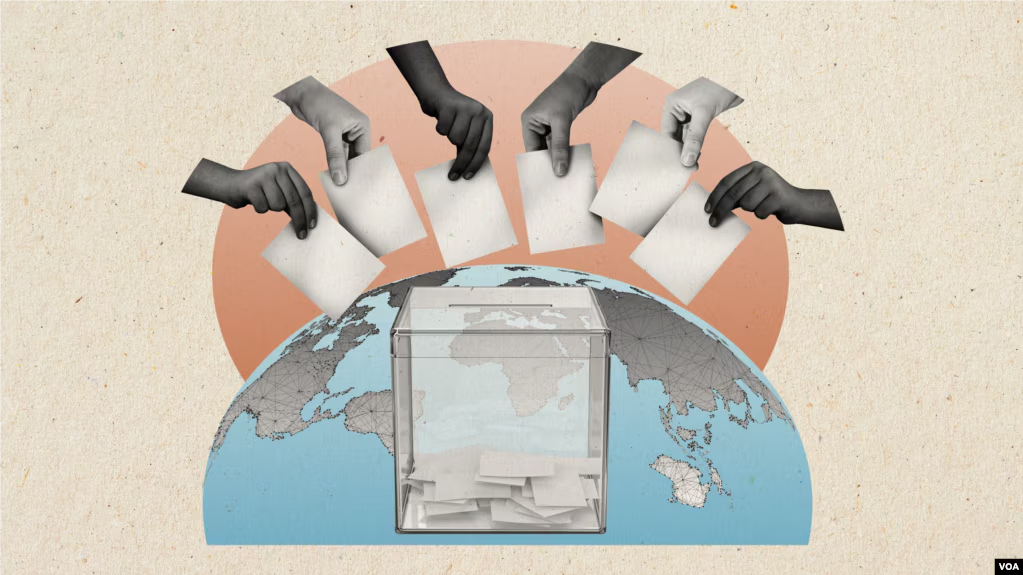As world leaders gather for COP30 in Belém, Brazil, the question looms: How far have we progressed in addressing the interlinked crises of climate change and health? The Lancet Countdown 2025, released just one month before the summit, suggested the answer is deeply troubling. The report opens with a stark milestone: in 2024, average annual global temperatures exceeded 1.5°C above preindustrial levels for the first time. Of the 20 indicators tracking health risks and impacts, 12 reached alarming new records in…
Category: Structural Violence
Structural violence refers to systematic and normalized social, economic, and political oppression of vulnerable populations. Structural violence includes income inequality, racism, homophobia, anti-Semitism, Islamophobia, sexism, ableism, and other means of social exclusion leading to stress, poverty, trauma, crime, incarceration, lack of access to care, healthy food, and physical activity.
Those in power typically benefit from structural violence. As a rule, they will cling to their power at all costs, including through physical violence to preserve or enact systemic changes that reinforce power divides. We live within systems that are expressly designed to reinforce social disparities.
Centrafrique: Humanitarian Priorities Must Be Based on Need, Not Geopolitics
The ongoing humanitarian crisis in the Central African Republic (CAR) remains one of the world’s most underreported and neglected emergencies. In 2022, CAR recorded one of the highest national crude mortality rates globally (55 deaths per 1,000 people), exceeding that of Ukraine, yet the crisis continues to receive minimal international attention. United Nations (UN) data suggest that there is no health emergency in CAR. This silence and lack of reliable information reflects a troubling pattern: the Global North’s selective visibility…
Ship breaking and recyling’s global divide – wealth for some, danger for others
Ship breaking and ship recycling is a billion-dollar industry that benefits economic giants in the Global North while leaving countries in the Global South, where environmental protections are weaker and labor laws are lax, to shoulder the environmental damage and human cost. Costs for workers include loss of health due to exposure to environmental toxins, injury and death. Ship breaking is a forgotten issue, made palatable under the guise of “economic opportunity” for nations like Bangladesh, Pakistan, and India,…
The Lancet Sounds the Alarm on Global Plastics Crisis with New Health Countdown
As negotiations for a landmark Global Plastics Treaty intensify, a stark new report from The Lancet reveals the profound and growing threat plastics pose to both human and planetary health. Titled the “Countdown on Health and Plastics,” the report issues a grave warning: plastics are an under-recognized danger, responsible for an estimated $1.5 trillion in annual health-related costs worldwide. The crisis is intrinsically linked to the fossil fuel industry, which is pivoting to plastic production as markets for fossil fuels decline….
As Seattle Remembers Mandela’s Visit, a Reminder of the Power of Local Activism
Seattle’s Museum of History & Industry (MOHAI) is honoring Nelson Mandela’s legacy with a powerful community event and exhibition reflecting on his historic 1999 visit and the city’s deep ties to the global anti-apartheid movement. The event and exhibit underscore how local movements, like the one in Seattle, can drive change far beyond their borders. It’s inspiring to remember how people, geographically distant from South Africa, came together to demand justice and ultimately contributed to dismantling apartheid. This movement reminds…
Poem: No home
The sun warms my face I stretch my fingers Watch the sunlight Dance across my skin Warm and inviting In these moments of calm silence I think about who I am Who I was And who I want to be Increasingly so, I think about my privileges My thoughts keep circling back To the fear in people’s hearts Of their homes being ransacked Of being banished They say they are protecting their own But what does…
Interview: DrGH Student Zahra Zeinali on Winning Young Professional Award for Her Work in Gender Equality in Health Policy and Systems
Zahra Zeinali, MD, MPH, is a third-year student in the Doctor of Global Health Leadership and Practice (DrGH) program at the University of Washington. In November 2024, she was awarded the Societal Awards Young Professional Award by Health Systems Global and the Alliance for Health Policy and Systems Research for her impact in advancing gender equality in health policy and systems research. In this interview, Zahra discusses with Ana Lucia Castillo, MD, a second-year Master of Public Health student in…
Global Election Results: Rejecting the Unhealthy Status Quo
Around the world, global elections reflect an emerging pattern: people are expressing discontent with a political and economic system that fails to address their most basic needs and well-being. This frustration manifests differently depending on context, whether through voting choices or street protests. At their core, these actions reflect a growing recognition of how governance, policies, and the uneven distribution of resources directly impact people’s everyday lives, well-being, and health. In the United States, the 2024 election results illuminate this…
Midwives on the Frontline: The Mental Health Toll in Haiti
Sara Jean is a midwife and mother living in Haiti. On World Mental Health Day, she shared her experience providing care for pregnant people and being pregnant herself amid political instability. In response to a question gauging the impact of the political crisis on her mental health and well-being, Jean reveals: “The ongoing political crisis in Haiti has taken a significant toll on my mental health. I often feel stressed, suffer from insomnia, nervousness, severe headaches, difficulty concentrating, and at…
Racism in U.S. Hospitals: Black Women Face Unnecessary C-Sections
C-section delivery is the most common surgery in American hospitals, accounting for about 30 percent of births- double the proportion recommended by the World Health Organization. While lifesaving in some cases, unnecessary C-sections increase the risk of complications for mothers and result in higher medical bills. A recent study showed that Black women in the U.S. are significantly more likely to receive unnecessary C-sections compared to white women, driven by financial incentives and biased decision-making. Read the full article here…









